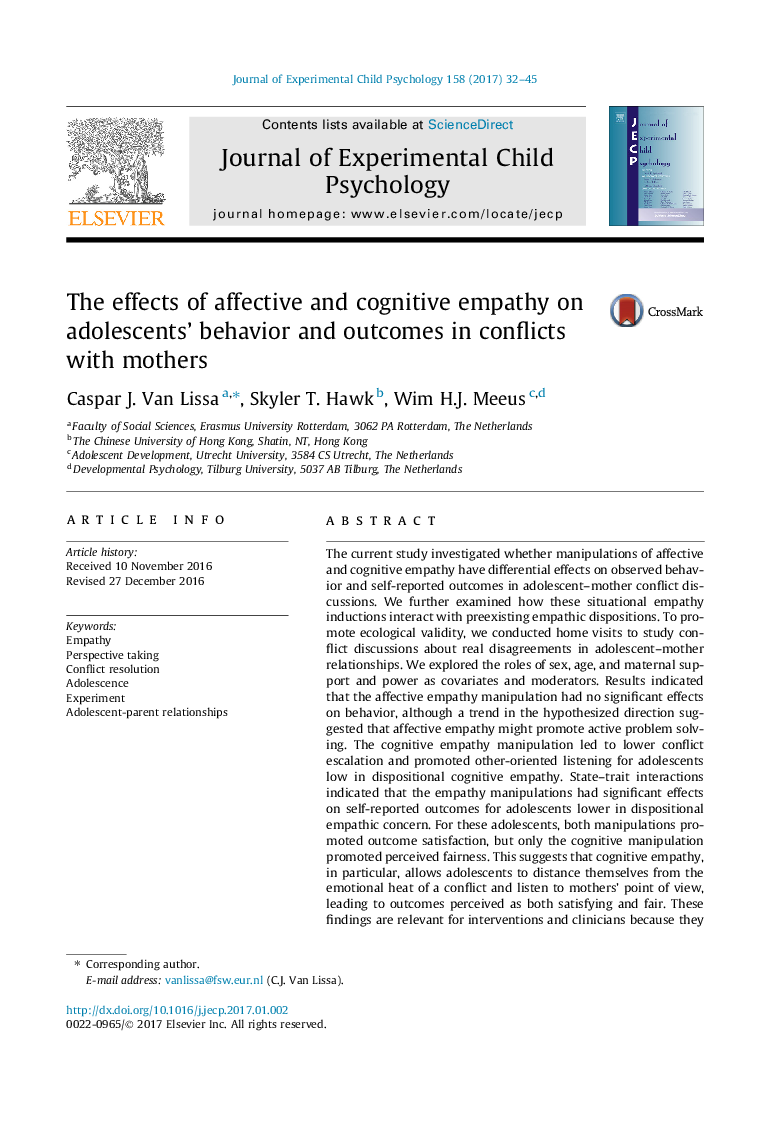ترجمه فارسی عنوان مقاله
اثرات همبستگی عاطفی و شناختی بر رفتار و نتایج نوجوانان در درگیری با مادران
عنوان انگلیسی
The effects of affective and cognitive empathy on adolescents behavior and outcomes in conflicts with mothers
| کد مقاله | سال انتشار | تعداد صفحات مقاله انگلیسی |
|---|---|---|
| 103353 | 2017 | 14 صفحه PDF |
منبع

Publisher : Elsevier - Science Direct (الزویر - ساینس دایرکت)
Journal : Journal of Experimental Child Psychology, Volume 158, June 2017, Pages 32-45
ترجمه کلمات کلیدی
یکدلی، چشم انداز، حل اختلاف، بلوغ، آزمایشی روابط نوجوان و والدین،
کلمات کلیدی انگلیسی
Empathy; Perspective taking; Conflict resolution; Adolescence; Experiment; Adolescent-parent relationships;

